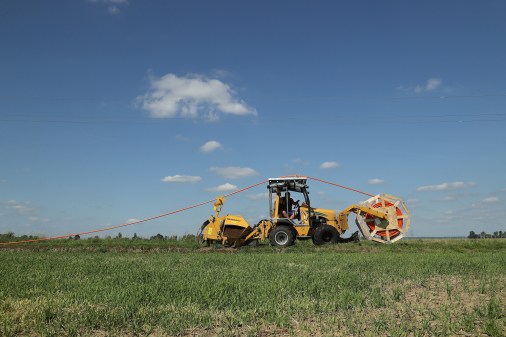White House says it will help improve state and local vaccine websites

Following President Joe Biden’s signing a $1.9 trillion COVID-19 relief package, White House officials said Friday that the administration will begin lending the federal government’s technological expertise to state and local governments that are still struggling to develop or maintain websites for making vaccination appointments.
The offer followed Biden’s announcement Thursday that the White House plans to launch a new federal site containing information about coronavirus vaccines by May 1, the same deadline the president gave for state, tribal and territorial governments to open vaccine eligibility to all adult residents.
While the pace of vaccinations is accelerating nationwide, many state and local governments have struggled to create functioning web portals where their residents can schedule their vaccinations. During a White House press briefing Friday, Jeffrey Zients, the White House’s coronavirus response coordinator, alluded to the heavy load placed on many of those sites.
“Since so many Americans use their state and local websites to schedule vaccine appointments, the administration will also deploy technology teams to help to improve these systems,” he said.
Vaccination-appointment website hiccups have been visible in many places, like Massachusetts, where the statewide vaccine portal’s failures last month led to Gov. Charlie Baker saying he was “pissed off” with its IT vendor, and Washington, D.C., where residents trying to get their jabs were greeted with technical errors for three consecutive days with little information from city officials.
While some of these issues have abated — a new D.C. site allowing residents to pre-register has functioned smoothly, so far — the new offer of federal help is an example of the White House’s ability to help state and local governments improve their digital services, said Cori Zarek, the executive director of the Beeck Center for Social Impact and Innovation at Georgetown University.
“People are hungry for help and support,” she told StateScoop. “State and local governments have been asking for this skill and expertise for a very long time.”
Zarek, a co-founder of the U.S. Digital Response, the nonprofit group that’s been helping governments shore up their digital services during the pandemic, had said last December that one of the White House’s biggest strengths with respect to state and local technology is its “power to convene.” She said Friday that the difficulty many states have had in developing working vaccine sites is ideal for that.
“This is exactly it,” she said. “This is the right role for federal leadership to play. The need and use case and demand is there.”
Zarek also said that the American Rescue Plan should make significant investments in governments’ digitization and modernization efforts. While the U.S. Digital Service, the White House unit that helps federal agencies overhaul their web services, is due to get an additional $200 million from the plan, Zarek said she expects some of the $350 billion allotted to state and local governments will be put to similar use.
“What we’ll want to pay close attention to is how that gets done and ensuring there are knowledgeable technologists in the government making these decisions and not just outsourcing all of it to the private sector,” she said. “We want to be able to trust that our governments are able to deliver to us when we need them to.”
And Zarek, who criticized the Trump administration for seldom offering technology guidance to the states, said she’s been impressed by the Biden White House’s outreach so far, including the recent expansion to state and local governments of login.gov, the federal government’s single sign-on service.
“One of the things I’m really excited about is the ability for some of the great tools and software to be adapted and scaled to states,” she said.




